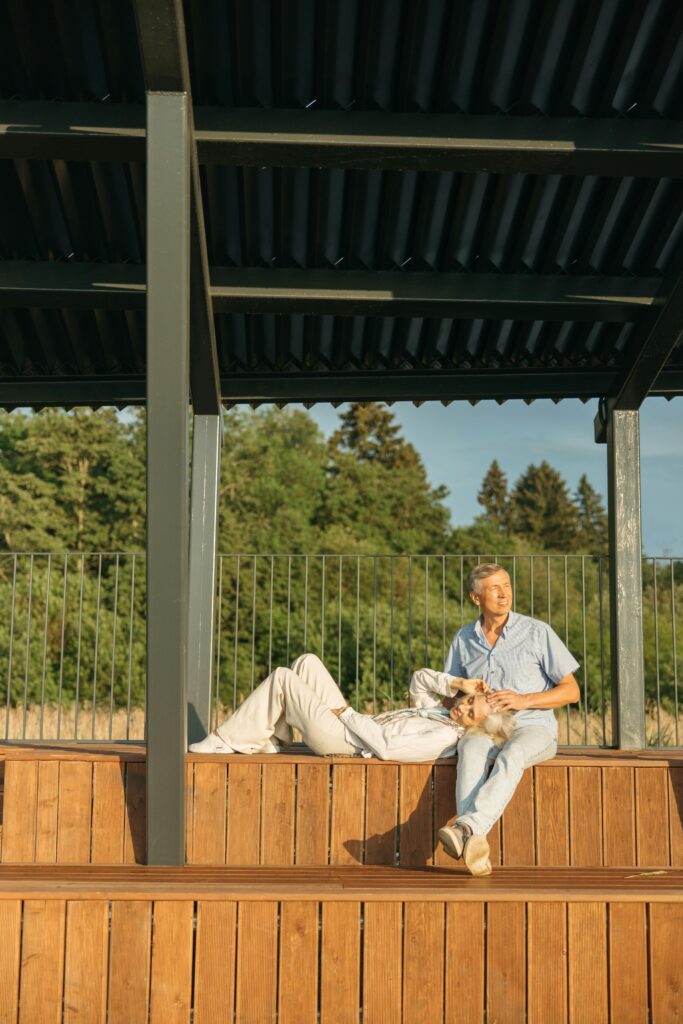One of the greatest desires among seniors is to remain independent for as long as possible. Independence means more than just living alone—it represents dignity, freedom, and the ability to enjoy life without relying too heavily on others. Maintaining independence as we age requires a proactive approach to health, wellness, and lifestyle.
This article explores how seniors can stay independent through fitness, nutrition, and practical daily habits that support both body and mind.
Why Independence Matters for Seniors
Independence provides a sense of self-worth and confidence. When seniors can make their own choices, manage their daily needs, and remain engaged in life, it leads to:
Greater happiness and emotional well-being
Reduced risk of depression and loneliness
Improved physical health
Stronger cognitive function
Enhanced quality of life
Aging does not have to mean giving up independence. With the right habits, many seniors can continue to thrive and live life on their own terms.
- Fitness for Strength, Balance, and Mobility
The Role of Exercise in Independence
Regular physical activity is key to maintaining independence because it:
Strengthens muscles and joints for mobility
Reduces risk of falls (a leading cause of disability in seniors)
Supports cardiovascular health
Enhances energy and stamina for daily tasks
Types of Exercises Seniors Should Do
Strength Training
Light dumbbells, resistance bands, or bodyweight exercises
Helps preserve muscle mass, preventing frailty
Balance and Flexibility
Yoga, tai chi, or simple balance exercises (standing on one foot)
Improves stability, reducing fall risks
Aerobic Exercise
Walking, cycling, swimming, or dancing
Supports heart health, lung capacity, and endurance
Tip: Even 20–30 minutes of movement per day—like walking around the neighborhood or doing chair stretches—can make a big difference.
- Nutrition for Strength and Longevity
Eat Foods That Fuel Independence
Good nutrition supports energy, mobility, and brain function. Seniors should focus on:
Protein: Chicken, fish, beans, eggs—helps preserve muscle strength.
Calcium and Vitamin D: Dairy, leafy greens, fortified foods—maintains strong bones.
Omega-3s: Salmon, walnuts, flaxseed—improves brain health.
Fiber: Whole grains, fruits, vegetables—supports digestion and heart health.
Hydration Is Essential
Many seniors underestimate the importance of water. Dehydration can cause fatigue, confusion, and even falls. Aiming for 6–8 glasses of water daily helps maintain independence.
- Daily Habits That Support Independence
Maintain a Consistent Routine

Wake up and sleep at the same time daily.
Schedule meals, medication, and exercise at set times.
A stable routine builds confidence and reduces stress.
Prioritize Sleep
Quality sleep restores energy, improves memory, and enhances physical performance. Seniors should aim for 7–9 hours of restful sleep each night.
Home Safety and Fall Prevention
Falls can threaten independence, but small adjustments make homes safer:
Install grab bars in bathrooms.
Use non-slip rugs and shoes.
Keep hallways and rooms well-lit.
Place essential items within easy reach.
Use Technology to Stay Independent
Medication reminder apps prevent missed doses.
Wearable devices track heart rate and steps.
Voice assistants help with reminders, shopping, and emergency calls.
- Mental and Social Wellness
Keep the Mind Active
Brain health is just as important as physical strength.
Read books, do puzzles, or try memory games.
Learn new hobbies or skills.
Engage in lifelong learning through community classes or online courses.
Stay Socially Connected
Isolation reduces independence by weakening emotional and physical resilience.
Join community centers, religious groups, or hobby clubs.
Regular phone or video calls with loved ones provide encouragement.
Volunteering creates purpose and reduces loneliness.
- Managing Chronic Conditions Proactively
Chronic conditions such as arthritis, diabetes, or high blood pressure don’t have to limit independence. With consistent care:
Take medications as prescribed without skipping doses.
Monitor symptoms and share changes with healthcare providers.
Adopt condition-specific diets (low sodium for heart health, low sugar for diabetes).
Effective management keeps seniors healthier and less dependent on caregivers.
- Emotional and Spiritual Wellness
Independence isn’t just physical—it’s also emotional. Seniors should nurture inner strength by:
Practicing gratitude through journaling or reflection.
Exploring mindfulness or meditation to reduce stress.
Engaging in spirituality or faith practices for peace and purpose.
Maintaining hobbies and passions to feel productive and fulfilled.
- Family and Caregiver Support
While the goal is independence, family and caregivers play a supportive role. Encouragement and respect for autonomy make seniors feel valued. Families can help by:
Encouraging safe physical activity
Supporting healthy eating choices
Respecting seniors’ decisions while offering assistance when needed
Creating an environment where seniors feel empowered, not dependent
- A Sample Independence-Boosting Daily Routine
To bring all these elements together, here’s what a simple day could look like:
Morning: Light stretching, balanced breakfast (eggs, whole-grain toast, fruit), medication check.
Midday: 20–30 minute walk, social call with a friend, hydration break.
Afternoon: Healthy lunch (salad with chicken or beans), puzzle or reading time.
Evening: Nutritious dinner, light yoga or breathing exercises, gratitude journaling.
Night: Wind down with music or meditation, then a consistent bedtime.
Conclusion: Independence Is Built Daily
Maintaining independence as a senior doesn’t happen by chance—it’s the result of daily choices around fitness, nutrition, mental health, and safe habits. By staying active, eating well, building strong routines, and embracing technology, seniors can extend their independence for years to come.
Independence means living life fully, with dignity and confidence. With a proactive approach, seniors can enjoy the freedom they desire and deserve—while inspiring others with their resilience and vitality.



